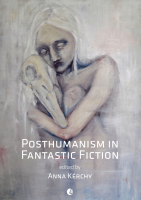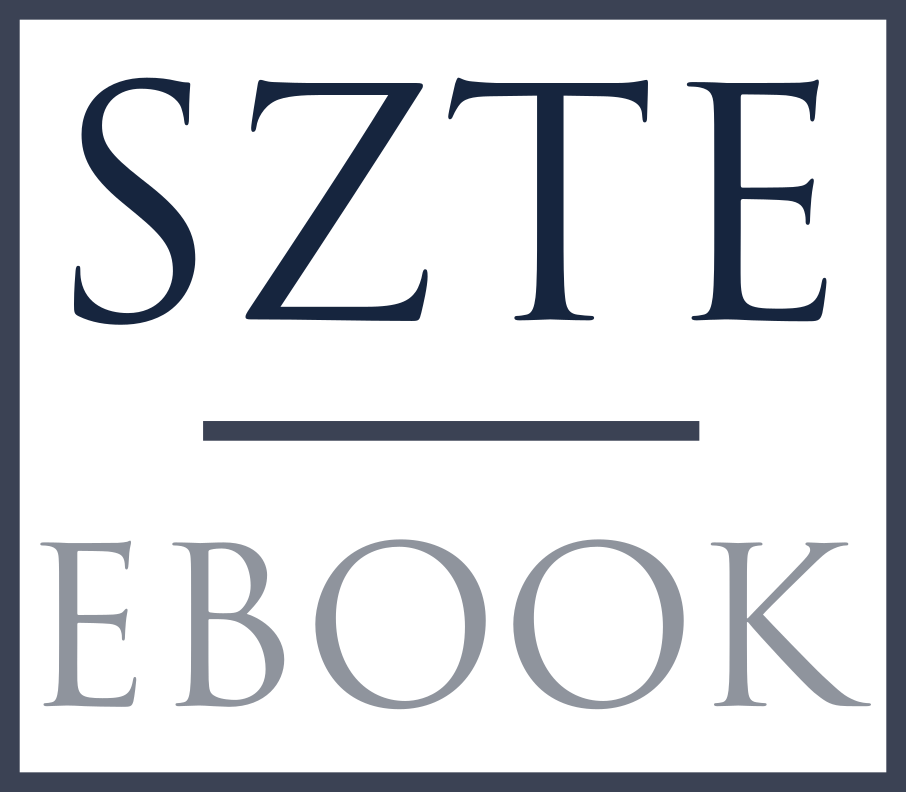Posthumanism in fantastic fiction
Keywords:
Amerikanisztika, tanulmányokSynopsis
Posthumanism in Fantastic Fiction is a collection of interdisciplinary studies by established and emerging international scholars devoted to the discussion of literary redefinitions of the human subject’s place in the world. They focus on fantasies that challenge anthropocentric epistemology and Cartesian dualism to redraw the boundaries between the human, the animal, the technological, the natural environment, and the ‘inanimate’ object world. The articles combine the methodological apparatuses and theoretical insights of critical animal-, plant-, thing- studies and posthumanist philosophy with literary theories of the fantastic narrative mode. They scrutinize an impressive range of literary fantasy subgenres, including the postmodern science-fiction dystopia, ecohorror, mythopoeia, (new) weird fiction, environmentalist picturebook, and proto-modern ghost story. Contributors venture to explore how a posthumanist identity politics allows to address metaphysical, philosophical, ethical, legal, technological concerns beyond speciesist shortsightedness. The volume embraces a common goal of humanists and posthumanists by aiming to listen more attentively to the promise of companion species as the best chance for preserving and responsibly inhabiting our worlds.
Cover image: Zsófia Jakab. Swan Maiden. Oil on canvas. 50 x 70 cm, 2016.
We also offer a paperback, Print-on-Demand version of this book, available from Amazon.com.
Table of Contents
Anna Kérchy: Introduction
Kathleen McCracken: ‘For Us To Live A Star Must Die’
Enikő Bollobás: The Fantastic as Performative:Mark Twain and Ambrose Bierce Performing the Unreal
Kendra Reynolds: “We’re All The Same, Under The Skin”: Michel Faber’s Ecofeminist Web of Equality
Éva Federmayer: The Genesis of the Anthropocene: An Ecocritical Reading of Toni Morrison’s A Mercy
Gergely Nagy: A God Like the Animals: the Mythological Subject in Frank Herbert’s God Emperor of Dune
Daniel Nyikos: “Growing grey and brittle”: The Horror of Abjection in H. P. Lovecraft’s “The Colour Out of Space”
Péter Kristóf Makai: “One sentence disguising a multitude of horrors”: Humankind Sentenced to Life in Jeff VanderMeer’s Southern Reach Trilogy
András Molnár: “Everything Was Crawling within Itself”: Posthumanism in the New Weird Stuff of Thomas Ligotti’s Short Fiction
Florian Zitzelsberger: “No one can sing who has smog in his throat”: Voices of Environmentalism and Ecological Awareness in Dr. Seuss’s The Lorax
Chengcheng YouPicturing a Posthuman Identity: Personhood, Affect and Companionship Ethics in Mary Liddell’s Little Machinery and Shaun Tan’s The Lost Thing
András Fodor: Space or place? Posthumanist Revisions of Absence and Presence in China Miéville’s The City and The City
Korinna Csetényi: “The monsters are us”: Mad Scientists and Mutated Beasts in Contemporary Natural Horror Fiction
Edit Újvári: The Iconographic Motif of the Hellmouth, the Man-Eating Beast and Giger’s Alien Figure
Alina Gabriela Mihalache: Rhinos Go on Stage: Animal Allegory Behind and Beyond the Iron Curtain
András Bernáth: The Challenge of the Old Mole:A Key Problem in Shakespeare’s Hamlet and Its Reception

Published
Series
License

This work is licensed under a Creative Commons Attribution-NonCommercial-NoDerivatives 3.0 Unported License.


